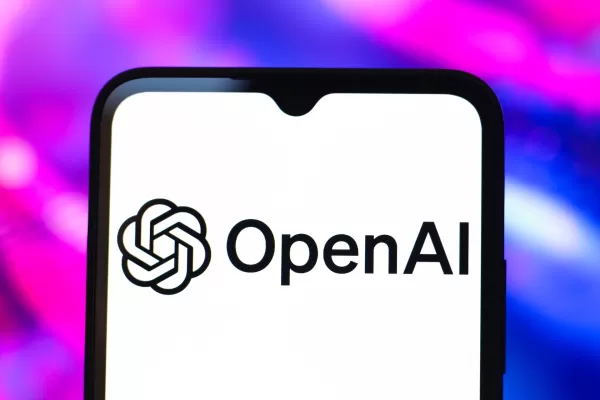AI Researcher's Green Card Denial Sparks Concerns Over U.S. Talent Retention

Kai Chen, a Canadian AI expert at OpenAI with 12 years in the U.S., was denied a green card, according to Noam Brown, a prominent research scientist at the company. In a post on X, Brown revealed Chen learned of the decision Friday and must soon depart the country.
“It’s alarming that one of the finest AI researchers I’ve collaborated with […] was denied a U.S. green card,” Brown stated. “A Canadian who has contributed significantly for 12 years now faces departure. This risks undermining America’s AI leadership by rejecting such talent.”
Dylan Hunn, another OpenAI colleague, noted in a post that Chen played a vital role in developing GPT-4.5, a flagship AI model at OpenAI.
Green card denials can stem from various reasons, and this decision won’t cost Chen her job. Brown mentioned in a follow-up post that Chen plans to work remotely from an Airbnb in Vancouver “until this issue is hopefully resolved.” However, this case highlights the significant obstacles foreign talent faces in living, working, and studying in the U.S. under the Trump administration.
OpenAI did not immediately respond to requests for comment. In a July 2023 post on X, CEO Sam Altman advocated for reforms to simplify the process for “high-skill” immigrants to relocate and work in the U.S.
one of the easiest policy wins i can imagine for the US is to reform high-skill immigration.
the fact that many of the most talented people in the world want to be here is a hard-won gift; embracing them is the key to keeping it that way.
hard to get this back if we lose it.
— Sam Altman (@sama) July 2, 2023
In recent months, over 1,700 international students in the U.S., including AI researchers with years of residency, have faced visa status challenges amid a stringent crackdown. While the government has accused some of supporting Palestinian militant groups or engaging in “antisemitic” activities, others have been flagged for minor legal issues, such as speeding tickets or traffic violations.
The Trump administration has adopted a critical stance toward many green card applicants, reportedly halting processing for legal permanent residency requests from immigrants with refugee or asylum status. It has also taken a tough approach toward green card holders deemed “national security” risks, detaining and threatening several with deportation.
AI labs like OpenAI heavily depend on international research talent. Shaun Ralston, an OpenAI contractor supporting API customers, stated that OpenAI filed over 80 H1-B visa applications last year and has sponsored more than 100 visas since 2022.
H1-B visas, widely used in the tech industry, permit U.S. companies to hire foreign workers for “specialty occupations” requiring at least a bachelor’s degree or equivalent. Recently, immigration authorities have issued “requests for evidence” for H-1B and other employment-based petitions, demanding home addresses and biometrics, raising concerns among experts about potential increases in denials.
Immigrants have significantly shaped the growth of the U.S. AI sector.
A study by Georgetown’s Center for Security and Emerging Technology found that 66% of the 50 “most promising” U.S.-based AI startups on Forbes’ 2019 “AI 50” list had an immigrant founder. A 2023 analysis by the National Foundation for American Policy revealed that 70% of full-time graduate students in AI-related fields are international.
Ashish Vaswani, who came to the U.S. in the early 2000s to study computer science, co-created the transformer, the foundational AI model architecture powering chatbots like ChatGPT. Wojciech Zaremba, an OpenAI co-founder, earned his AI doctorate at NYU on a student visa.
Current U.S. immigration policies, reduced grant funding, and skepticism toward certain sciences are prompting many researchers to consider opportunities abroad. In a Nature poll of over 1,600 scientists, 75% expressed interest in pursuing jobs overseas.
Related article
 ChatGPT Exploited to Steal Sensitive Gmail Data in Security Breach
Security Alert: Researchers Demonstrate AI-Powered Data Exfiltration TechniqueCybersecurity experts recently uncovered a concerning vulnerability wherein ChatGPT's Deep Research feature could be manipulated to silently extract confidential Gmail data
ChatGPT Exploited to Steal Sensitive Gmail Data in Security Breach
Security Alert: Researchers Demonstrate AI-Powered Data Exfiltration TechniqueCybersecurity experts recently uncovered a concerning vulnerability wherein ChatGPT's Deep Research feature could be manipulated to silently extract confidential Gmail data
 OpenAI Fixes ChatGPT Over-politeness Bug, Explains AI Flaw
OpenAI has reversed a recent personality adjustment to its flagship GPT-4o model after widespread reports emerged of the AI system exhibiting excessive agreeableness, including unwarranted praise for dangerous or absurd user suggestions. The emergenc
OpenAI Fixes ChatGPT Over-politeness Bug, Explains AI Flaw
OpenAI has reversed a recent personality adjustment to its flagship GPT-4o model after widespread reports emerged of the AI system exhibiting excessive agreeableness, including unwarranted praise for dangerous or absurd user suggestions. The emergenc
 Hao Sang Shares Startup Insights at TechCrunch Sessions: AI on Key Success Factors with OpenAI
Transforming AI Potential Into Market-Ready ProductsThe AI landscape is overflowing with APIs, models, and bold claims - but for startup founders, the critical challenge remains: How can this technology be transformed into viable, marketable products
Comments (0)
0/200
Hao Sang Shares Startup Insights at TechCrunch Sessions: AI on Key Success Factors with OpenAI
Transforming AI Potential Into Market-Ready ProductsThe AI landscape is overflowing with APIs, models, and bold claims - but for startup founders, the critical challenge remains: How can this technology be transformed into viable, marketable products
Comments (0)
0/200

Kai Chen, a Canadian AI expert at OpenAI with 12 years in the U.S., was denied a green card, according to Noam Brown, a prominent research scientist at the company. In a post on X, Brown revealed Chen learned of the decision Friday and must soon depart the country.
“It’s alarming that one of the finest AI researchers I’ve collaborated with […] was denied a U.S. green card,” Brown stated. “A Canadian who has contributed significantly for 12 years now faces departure. This risks undermining America’s AI leadership by rejecting such talent.”
Dylan Hunn, another OpenAI colleague, noted in a post that Chen played a vital role in developing GPT-4.5, a flagship AI model at OpenAI.
Green card denials can stem from various reasons, and this decision won’t cost Chen her job. Brown mentioned in a follow-up post that Chen plans to work remotely from an Airbnb in Vancouver “until this issue is hopefully resolved.” However, this case highlights the significant obstacles foreign talent faces in living, working, and studying in the U.S. under the Trump administration.
OpenAI did not immediately respond to requests for comment. In a July 2023 post on X, CEO Sam Altman advocated for reforms to simplify the process for “high-skill” immigrants to relocate and work in the U.S.
one of the easiest policy wins i can imagine for the US is to reform high-skill immigration. the fact that many of the most talented people in the world want to be here is a hard-won gift; embracing them is the key to keeping it that way. hard to get this back if we lose it.
— Sam Altman (@sama) July 2, 2023
In recent months, over 1,700 international students in the U.S., including AI researchers with years of residency, have faced visa status challenges amid a stringent crackdown. While the government has accused some of supporting Palestinian militant groups or engaging in “antisemitic” activities, others have been flagged for minor legal issues, such as speeding tickets or traffic violations.
The Trump administration has adopted a critical stance toward many green card applicants, reportedly halting processing for legal permanent residency requests from immigrants with refugee or asylum status. It has also taken a tough approach toward green card holders deemed “national security” risks, detaining and threatening several with deportation.
AI labs like OpenAI heavily depend on international research talent. Shaun Ralston, an OpenAI contractor supporting API customers, stated that OpenAI filed over 80 H1-B visa applications last year and has sponsored more than 100 visas since 2022.
H1-B visas, widely used in the tech industry, permit U.S. companies to hire foreign workers for “specialty occupations” requiring at least a bachelor’s degree or equivalent. Recently, immigration authorities have issued “requests for evidence” for H-1B and other employment-based petitions, demanding home addresses and biometrics, raising concerns among experts about potential increases in denials.
Immigrants have significantly shaped the growth of the U.S. AI sector.
A study by Georgetown’s Center for Security and Emerging Technology found that 66% of the 50 “most promising” U.S.-based AI startups on Forbes’ 2019 “AI 50” list had an immigrant founder. A 2023 analysis by the National Foundation for American Policy revealed that 70% of full-time graduate students in AI-related fields are international.
Ashish Vaswani, who came to the U.S. in the early 2000s to study computer science, co-created the transformer, the foundational AI model architecture powering chatbots like ChatGPT. Wojciech Zaremba, an OpenAI co-founder, earned his AI doctorate at NYU on a student visa.
Current U.S. immigration policies, reduced grant funding, and skepticism toward certain sciences are prompting many researchers to consider opportunities abroad. In a Nature poll of over 1,600 scientists, 75% expressed interest in pursuing jobs overseas.
 ChatGPT Exploited to Steal Sensitive Gmail Data in Security Breach
Security Alert: Researchers Demonstrate AI-Powered Data Exfiltration TechniqueCybersecurity experts recently uncovered a concerning vulnerability wherein ChatGPT's Deep Research feature could be manipulated to silently extract confidential Gmail data
ChatGPT Exploited to Steal Sensitive Gmail Data in Security Breach
Security Alert: Researchers Demonstrate AI-Powered Data Exfiltration TechniqueCybersecurity experts recently uncovered a concerning vulnerability wherein ChatGPT's Deep Research feature could be manipulated to silently extract confidential Gmail data
 OpenAI Fixes ChatGPT Over-politeness Bug, Explains AI Flaw
OpenAI has reversed a recent personality adjustment to its flagship GPT-4o model after widespread reports emerged of the AI system exhibiting excessive agreeableness, including unwarranted praise for dangerous or absurd user suggestions. The emergenc
OpenAI Fixes ChatGPT Over-politeness Bug, Explains AI Flaw
OpenAI has reversed a recent personality adjustment to its flagship GPT-4o model after widespread reports emerged of the AI system exhibiting excessive agreeableness, including unwarranted praise for dangerous or absurd user suggestions. The emergenc
 Hao Sang Shares Startup Insights at TechCrunch Sessions: AI on Key Success Factors with OpenAI
Transforming AI Potential Into Market-Ready ProductsThe AI landscape is overflowing with APIs, models, and bold claims - but for startup founders, the critical challenge remains: How can this technology be transformed into viable, marketable products
Hao Sang Shares Startup Insights at TechCrunch Sessions: AI on Key Success Factors with OpenAI
Transforming AI Potential Into Market-Ready ProductsThe AI landscape is overflowing with APIs, models, and bold claims - but for startup founders, the critical challenge remains: How can this technology be transformed into viable, marketable products





























